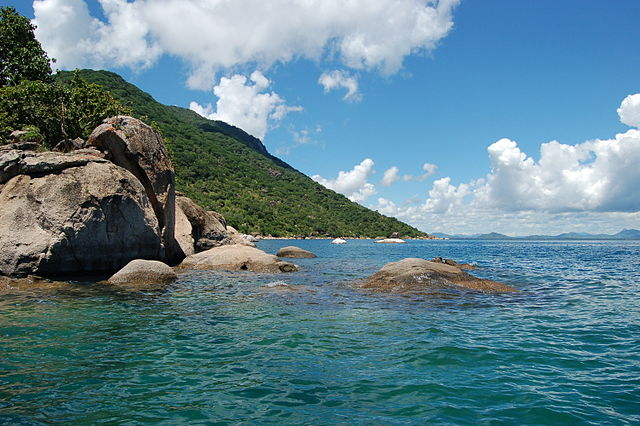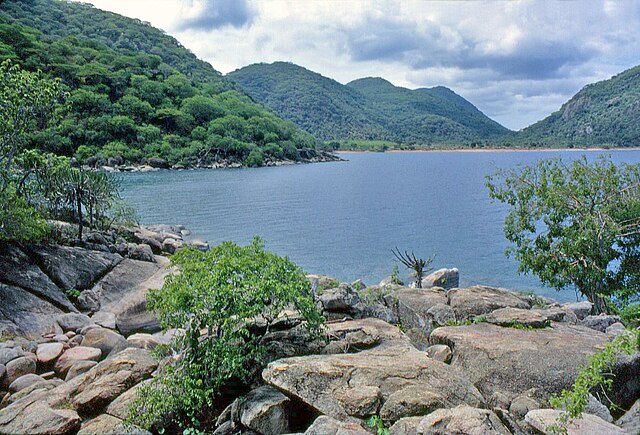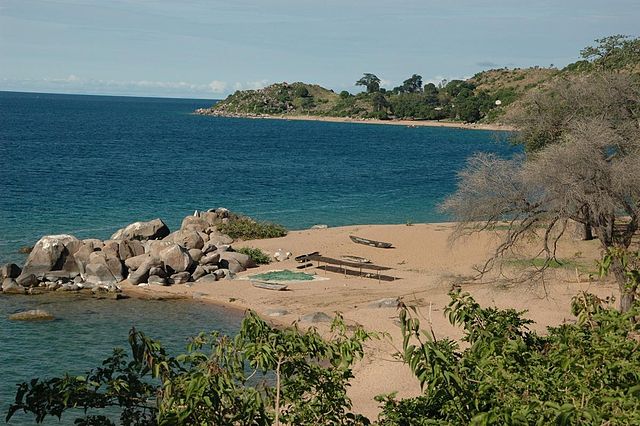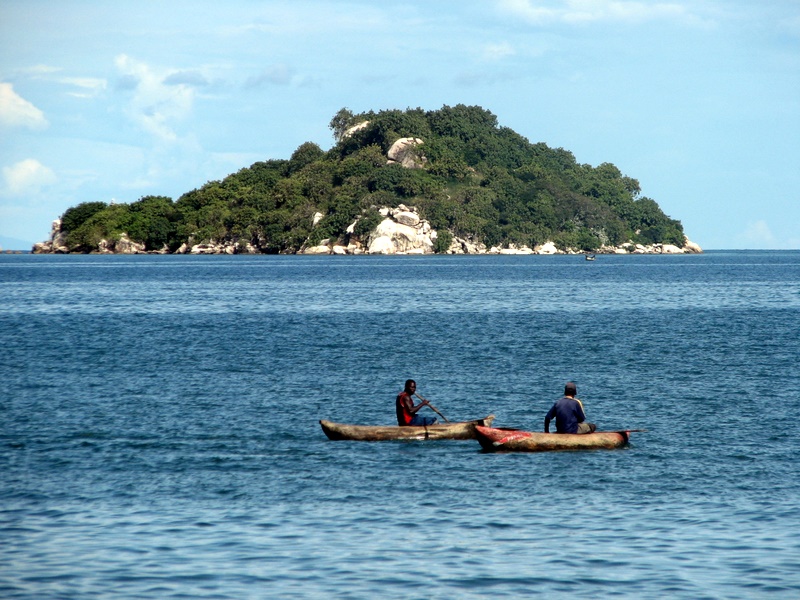
On Wednesday, 2 June 2021, Thammasat University students are invited to participate in a webinar at 6:30pm Bangkok time, featuring Dr. Joyce Banda in conversation with Julia Gillard.
Dr. Joyce Banda is the first woman to have served as president of Malawi a landlocked country in southeastern Africa.
The Thammasat University Library collection includes a number of books about Malawi.
Dr. Banda will be in conversation with Julia Gillard, the only woman to have served as Prime Minister of Australia.
Ms. Gillard serves as Chair of the Global Institute for Women’s Leadership (GIWL) based at King’s College London, The United Kingdom. The TU Library owns a book that includes public speeches by Ms. Gillard.
GIWL recently published Essays on Equality – Covid-19: the road to a gender equal recovery, exploring the gendered impacts of the coronavirus crisis and featuring contributions from GIWL researchers, leading academics, campaigners and more. The book is available for free download at this link.
Dr. Banda has been a prominent advocate for the rights of women and girls, including successfully working to reduce high maternal mortality rates in Malawi, promoting safe motherhood and fighting gender-based violence.
As the GIWL website indicates,
President Banda will speak to GIWL Chair Julia Gillard about her experience leading as a woman, how to overcome the gendered barriers to a career in politics, and her thoughts on women’s leadership and empowerment in Africa, particularly in light of Covid-19.
Students who wish to register for the event to be seen on Zoom are kindly asked to do so at the following link:
https://us02web.zoom.us/webinar/register/WN_4lLD1uDoQ1i-uhHaJqGmKg
An article from 2016 posted on the website of the Chr. Michelsen Institute for Science and Intellectual Freedom (CMI) an independent development research institute in Norway, discusses some of the challenges that r. Banda faced during her time as president.
CMI is named after Christian Michelsen, former prime minister of Norway who led that country’s establishment of an independent Norwegian state in 1905.
As the CMI website observes, its goals include doing
high quality research that influences policy and practice, for our close interaction with stakeholders and for being particularly good at communicating our research findings.
Our researchers and programme advisors are social scientists mainly in the fields of anthropology, economics and political science. The pillars of our work are quality research, diversity in disciplines and methods and extensive research communication. We work closely with partners in the global South to ensure that local perspectives influence our priorities and research questions.
The website of the Center for Strategic and International Studies (CSIS), a bipartisan, nonprofit policy research organization dedicated to advancing practical ideas to address the world’s greatest challenges, offers a video interview with Dr. Banda from 2013 about New Focus on Women’s Health and Empowerment.
In it she discussed how women leaders in Africa are bringing new attention to women’s health and empowerment in their own countries, and to bring those voices into the discussion about U.S. policy priorities for women’s global health.

Academic research about Thailand and Malawi
Among comparative academic research involving the Kingdom and Malawi, a joint research project from 2010 addresses the One Village One Product (OVOP) movements of Japan, Thailand, and Malawi to examine their similarities and differences and to provide Sub-Sahara African countries that are adopting the OVOP approach with measures necessary to overcome existing constraints. The OVOP movement encourages the mobilization of local human, material, and cultural resources to create value-added products and services for domestic and external markets. However, the Thai and Malawian OVOP efforts differ from the Japanese OVOP programme in that the initiative spurring their adoption was taken by their central governments and in their emphasis on economic, rather than social purposes. We assess and compare the effectiveness of OVOP approaches in the three countries. With respect to Malawi, we find that OVOP has helped to improve productivity in some cases, changed the value chain structure in other cases, provided market access through labelling and reached many thousands of households. This study suggests that, in order to make OVOP take off in Africa, prompt action is necessary on several fronts. First, spatial connectivity needs to be improved so that OVOP producers can participate in national and global value chains. Brand-making and e-commerce could also be promising areas as demonstrated by Thai success. African countries will need further foreign cooperation in financing and management training. In order to use limited resources effectively, however, stakeholders must coordinate their activities closely. Finally, we need to introduce social indicators (such as women’s empowerment), in addition to economic ones to assess the effectiveness of the OVOP movement.
The website of the United Nations Industrial Development Organization (UNIDO) defines the OVOP movement:
Essentially, the OVOP movement is to encourage villages to come up with a product, which is unique in the world. In economic theory, the effectiveness of such a project can be understood from the concept of product differentiation. If firms produce commodities (undifferentiated products), as in the case of many agricultural products, they are in a perfectly competitive market. The prices are determined by the supply and demand of the markets. This not only means that a firm has absolutely no influence over the price, but is also forced to accept the price of the market as given.

Economic and intellectual exchange
Published sources report that Malawi imports from Thailand amounted to US$12.64 Million for 2019, according to the United Nations COMTRADE database on international trade.
In terms of academic exchange, in 2018, The Journal of Health Research of the College of Public Health Sciences, Chulalongkorn University published an article on Factors influencing utilization of intermittent preventive treatment of malaria during pregnancy among mothers of under-one children in rural Lilongwe, Malawi.
The article was coauthored by Dr. Taonga Mafuleka of the Ministry of Health, Malawi and Dr. Montakarn Cheumchit of the College of Public Health Sciences, Chulalongkorn University.
International outreach
As further evidence of exchange, two years ago, when Cyclone Idai damaged Malawi and surrounding nations, affecting over 1.5 million children who urgently needed assistance, the United Nations Children’s Emergency Fund (UNICEF) Thailand launched an emergency appeal:
UNICEF Thailand today appealed to the Thai public for urgent donations to help over 1.5 million children whose lives are hanging in the balance after Cyclone Idai – the worst disaster to hit southern Africa in two decades – hit Malawi, Mozambique and Zimbabwe.
To donate, type 100 and send SMS to 4712225 to donate 100 baht
An estimated 3 million people, more than half of whom are children, urgently need humanitarian assistance in the aftermath of the Cylone Idai which slammed into Malawi, Mozambique and Zimbabwe last month. UNICEF has recently launched a global appeal for US$122 million to support its humanitarian response for children and families devastated by the storm and its aftermath in the three affected countries over the next nine months.
In a follow-up announcement, UNICEF Thailand
appealed to the Thai public for urgent donations as the needs in Mozambique remain massive, with 1 million children in need of assistance, followed by more than 443,000 in Malawi and 130,000 in Zimbabwe.
To donate, type 100 and send SMS to 4712225 to donate 100 baht.
SMS: Type 100 and send SMS to 4712225 (100 baht per one SMS)
Online: https://help.unicef.org/thailand/help-cyclone-idai?language=en
Bank Transfer: Bangkok Bank Account no. 201-3-01324-4
Please send your contact information (name, address, mobile phone number) together with pay slip to UNICEF and indicate “Cyclone Idai” for issuing tax receipt to unicefthailand@unicef.org fax: 02 356 9229.
In the private sector, Roche Diagnostics (Thailand) and Roche Thailand organized a Roche Children’s Walk to raise donations from employees and the company for children in Malawi and Thailand:
“This campaign initiates from employees’ intention to help and give back to society. We understand the significance of children development, both in Thailand and Malawi in South Africa, which is among the least developed countries with the highest poverty rate in the world. We want better quality lives for them.” explains Pichetpong Srisuwankul, managing director…
Roche donated half of the amount to Father Ray Foundation, a 43-year-old foundation established by Father Raymond Allyn Brennan. The foundation helps and raises more than 900 less fortunate children and disabled individuals of different ages, ranging from infants, children, teenagers, to adults. The remainder will go to philanthropic projects in Malawi.

(All images courtesy of Wikimedia Commons)
